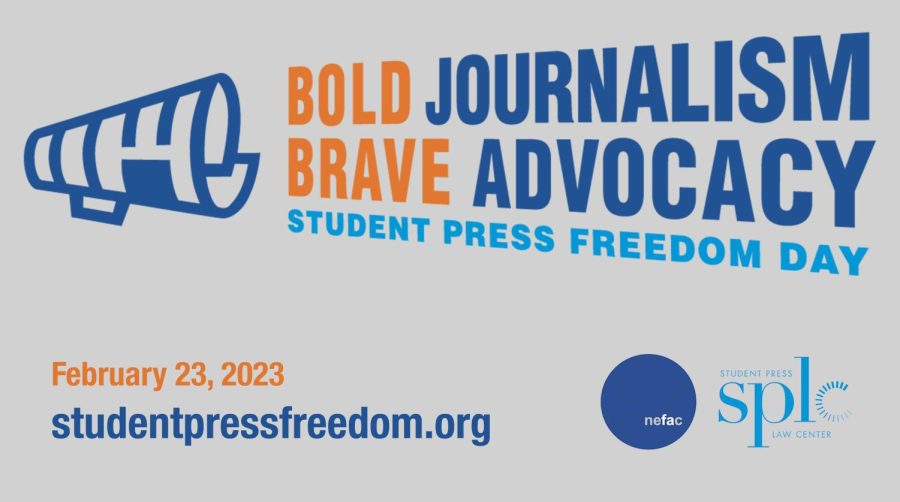Playing the waiting game
Bill for student journalists’ freedom of speech needs to be passed
Student Press Freedom day is coming up on Feb. 23. The wait for LB206 still stands as we stand up for our freedom of speech.
February 22, 2023
Student press freedom day is coming up on Feb. 23. This will be the fifth annual honoring of the student journalists’ freedom of speech. We, as journalists, have been fighting against the fear of censorship for a long time. The First Amendment clearly states our freedom of speech, and in 1969 the Supreme Court ruled in Tinker v Des Moines that their students “do not shed their First Amendment rights at the schoolhouse gates.” Yet here we are now, over 50 years later, still lacking laws to protect this freedom.
On Jan. 14, 2020, bill LB206 was approved by the Nebraska Legislature. This bill would ensure the press freedom of student journalists, allowing students to publish their work openly without the fear of censorship. It would still have to go through two more approvals to reach the governor’s desk so the bill could be acted upon. According to SPLC, because of COVID-19, the bill was placed into a select file and postponed until the following year’s legislature. It is now 2023. Three years have passed, and nothing has been done to further this bill.
Among the student journalists, their hope for freedom of speech without censorship or punishment has started to falter. The court has not taken any interest or action toward approving this bill. Although it states in the First Amendment that we have the right to free speech, the actions of Nebraska do not reflect their words of support. So we continue to play the waiting game and hope the bill continues to move through the legislative process.
To highlight the importance of a free student press, there’s the example of the Hazelwood v Kuhlmeir case. The student journalists of Hazelwood East High school in St. Louis, Missouri, wanted to publish stories on divorce and teen pregnancy in their school paper. As they were getting it published, the principal removed these stories from the paper. When brought to court, the Supreme Court ruled that the student paper wasn’t a public forum. They said it was limited and that the students could only publish approved stories.
Schools can censor the important things that students need to hear. Teen pregnancy and divorce are major issues in high school. If student journalists were allowed to write about these subjects, it could inform and, in turn, help high school students. But subjects like these are childishly censored. High school students are not young children. We understand deep topics and have the capability to learn from them. Writing about these topics would help inform, not disrupt, the educational process. Which is an outlier in LB206.
If the writing is “libelous or slanderous, constitutes an invasion of privacy, violates federal or state law,” or presents a danger to the educational institution, it will be censored. So, not all censorship is ignored, but the important censorship is highlighted and made more visible. No longer will schools censor students for subjects they simply don’t like, but they will censor for the right reasons.
I’m not saying censorship is a bad thing, but censorship needs to be used in the correct ways. This bill needs to be passed for the freedom of student journalists. We are sick of waiting for our rights to be protected.







